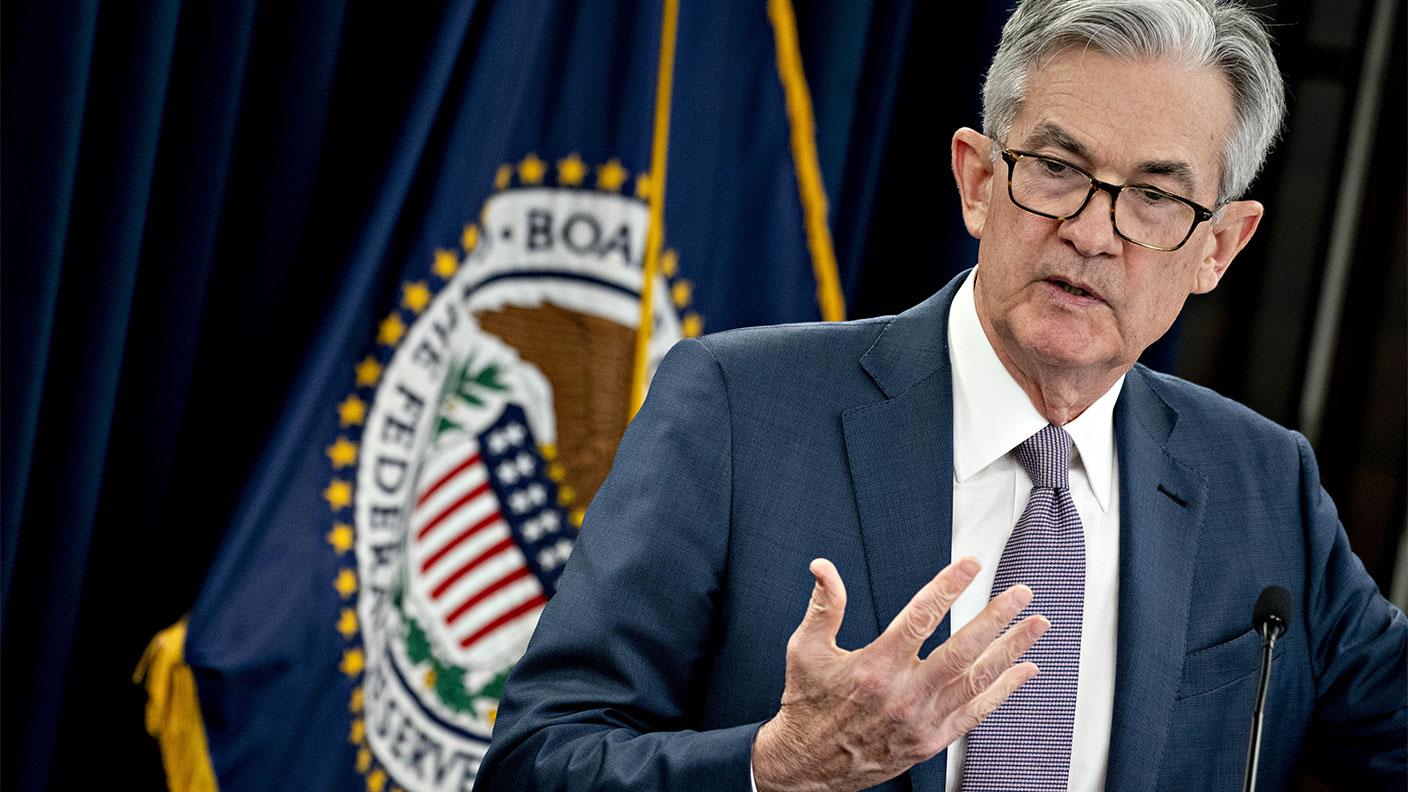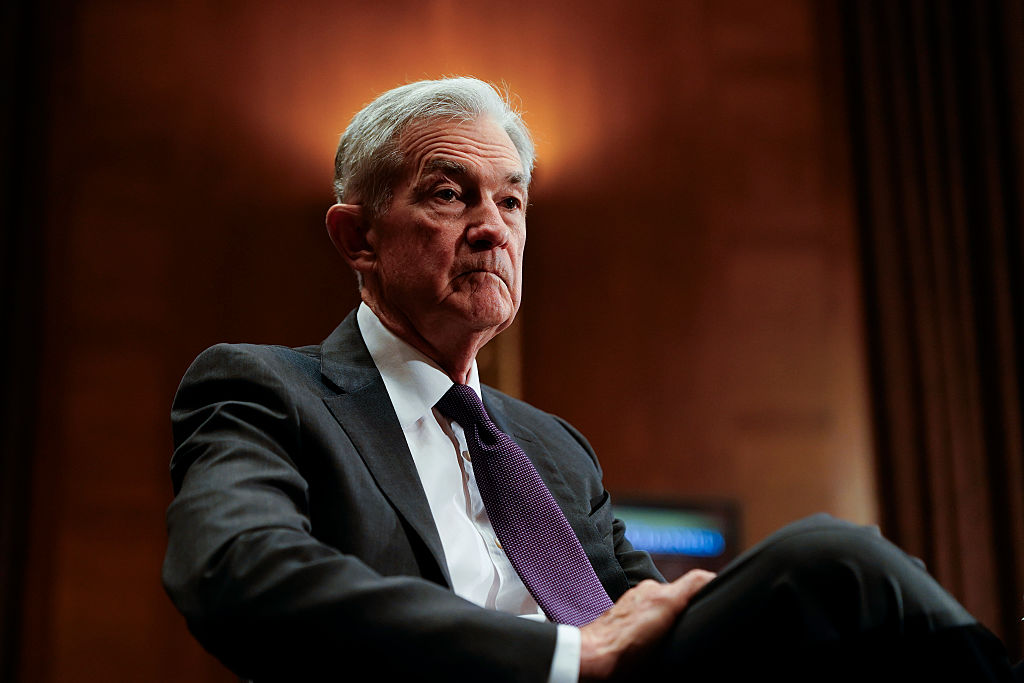How long can the Federal Reserve keep markets happy?
Markets breathed a sigh of relief after the Federal Reserve said it wouldn't raise interest rates for some time yet. But, asks John Stepek, how long will it be before they get the jitters again?


Get the latest financial news, insights and expert analysis from our award-winning MoneyWeek team, to help you understand what really matters when it comes to your finances.
You are now subscribed
Your newsletter sign-up was successful
Want to add more newsletters?

Twice daily
MoneyWeek
Get the latest financial news, insights and expert analysis from our award-winning MoneyWeek team, to help you understand what really matters when it comes to your finances.

Four times a week
Look After My Bills
Sign up to our free money-saving newsletter, filled with the latest news and expert advice to help you find the best tips and deals for managing your bills. Start saving today!
Last night’s meeting of the US Federal Reserve was – for markets at least – probably the most important it's had since the peak of the Covid-19 crisis.
As we've been writing about for a while, markets are a bit nervous. Investors are happy that the global economy is recovering and bouncing back, and that's all good news for corporate profits (overall, at least). But recovery also means something else.
Firstly, it means the economy is stronger and so it doesn't need as much support from central banks. Secondly, there's also the risk that prices rise quickly because of lots of demand hitting bottlenecked supply. If inflation takes off – which investors increasingly expect – then that also implies tighter monetary policy.
MoneyWeek
Subscribe to MoneyWeek today and get your first six magazine issues absolutely FREE

Sign up to Money Morning
Don't miss the latest investment and personal finances news, market analysis, plus money-saving tips with our free twice-daily newsletter
Don't miss the latest investment and personal finances news, market analysis, plus money-saving tips with our free twice-daily newsletter
The Fed is promising markets that it won't lift interest rates for a long, long time
Markets have grown used to a very supportive central bank. But, if the Fed starts to tug that support away, can they cope? A similar question arose in 2013, and we got the “taper tantrum” which then forced everyone involved to start rowing back hard.
It's clear that the Fed has learned its lesson from that and countless other little tantrums in the past. Fed chief Jerome Powell yesterday made it very clear that a) he's supremely relaxed about inflation, and b) it's good to see the economy recovering, but there's a long way to go.
The Fed did increase its expectations for US growth this year; it also expects unemployment to go down faster than thought previously. So the central bank reckons 2021 will be a good year for the US. However, it also made no real change to its own interest-rate expectations. It still doesn't expect interest rates to be above zero before 2024.
In short, the message is: the economy is going to recover, and that's good news, but we don't see any pressing need to raise interest rates for a good long while.
That's what the market wanted to hear. And in his press conference, Powell pushed the message more aggressively. He said, yes, inflation is likely to be higher in the next 12 months, but emphasised that it's all “transitory”. In other words, the Fed won't pay it any heed. He also focused closely on unemployment being too high, and made it clear that getting this down is the Fed's priority.
As John Authers puts it in his Bloomberg letter: “Powell was telling everyone that the Fed now cares more about unemployment than inflation, and that there's no need to worry that the likely inflation scare over the next few months, as the great shutdown passes more than 12 months into the past, will shake the [Fed] into tightening monetary policy.”
The immediate result was not surprising. The US dollar weakened (if interest rates are going to be stuck to the floor for longer, it usually means a weaker currency); stockmarkets shot up (they like a weaker dollar); bitcoin surged. Even gold, which has been mired in its own slough of “risk-on” despond recently, managed to perk up above $1,740 an ounce. And yields on long-term bonds continued to rise, steepening the yield curve.
What if the Fed is underestimating inflation?
Put simply, the Fed is saying that the economy is heading for a healthy reflation. So you get growth coming back and long-term interest rates rising a bit, but you don't get the sort of lasting surge in inflation that undermines all that growth. So the Fed can afford to stand back for a while longer and not worry about tightening monetary policy.
This is the “Goldilocks” scenario, and for now investors are reassured that the Fed still believes in it, and plans to act as though it's the case. It also suggests that the various “reflation” trades – particularly bank stocks – should keep doing well.
It's important to keep an eye out though. The biggest question is: how much inflation can the Fed ignore? And at what point might it have to do something more aggressive than talk about ignoring inflation?
As Michael Pearce of Capital Economics points out, this is the main risk to the Fed's forecasts. “Surveys suggest rising price pressure are broad-based, wage growth is elevated given the spare capacity in the labour market, and inflation expectations have trended higher over the past year”.
If inflation doesn't drop back or surges more powerfully than expected, then the Fed will have to come back and convince the market all over again that it's not going to act. That's when things start to get more interesting, and not necessarily in a comfortable way.
Anyway, we'll be writing a lot more about that in the coming issues of MoneyWeek magazine. You can get your first six issues plus a beginner's guide to bitcoin absolutely free here.
Get the latest financial news, insights and expert analysis from our award-winning MoneyWeek team, to help you understand what really matters when it comes to your finances.

-
 How a ‘great view’ from your home can boost its value by 35%
How a ‘great view’ from your home can boost its value by 35%A house that comes with a picturesque backdrop could add tens of thousands of pounds to its asking price – but how does each region compare?
-
 What is a care fees annuity and how much does it cost?
What is a care fees annuity and how much does it cost?How we will be cared for in our later years – and how much we are willing to pay for it – are conversations best had as early as possible. One option to cover the cost is a care fees annuity. We look at the pros and cons.
-
 How a dovish Federal Reserve could affect you
How a dovish Federal Reserve could affect youTrump’s pick for the US Federal Reserve is not so much of a yes-man as his rival, but interest rates will still come down quickly, says Cris Sholto Heaton
-
 New Federal Reserve chair Kevin Warsh has his work cut out
New Federal Reserve chair Kevin Warsh has his work cut outOpinion Kevin Warsh must make it clear that he, not Trump, is in charge at the Fed. If he doesn't, the US dollar and Treasury bills sell-off will start all over again
-
 'Investors should brace for Trump’s great inflation'
'Investors should brace for Trump’s great inflation'Opinion Donald Trump's actions against Federal Reserve chair Jerome Powell will likely stoke rising prices. Investors should prepare for the worst, says Matthew Lynn
-
 'Governments are launching an assault on the independence of central banks'
'Governments are launching an assault on the independence of central banks'Opinion Say goodbye to the era of central bank orthodoxy and hello to the new era of central bank dependency, says Jeremy McKeown
-
 Will Donald Trump sack Jerome Powell, the Federal Reserve chief?
Will Donald Trump sack Jerome Powell, the Federal Reserve chief?It seems clear that Trump would like to sack Jerome Powell if he could only find a constitutional cause. Why, and what would it mean for financial markets?
-
 Can Donald Trump fire Jay Powell – and what do his threats mean for investors?
Can Donald Trump fire Jay Powell – and what do his threats mean for investors?Donald Trump has been vocal in his criticism of Jerome "Jay" Powell, chairman of the Federal Reserve. What do his threats to fire him mean for markets and investors?
-
 Do we need central banks, or is it time to privatise money?
Do we need central banks, or is it time to privatise money?Analysis Free banking is one alternative to central banks, but would switching to a radical new system be worth the risk?
-
 Will turmoil in the Middle East trigger inflation?
Will turmoil in the Middle East trigger inflation?The risk of an escalating Middle East crisis continues to rise. Markets appear to be dismissing the prospect. Here's how investors can protect themselves.